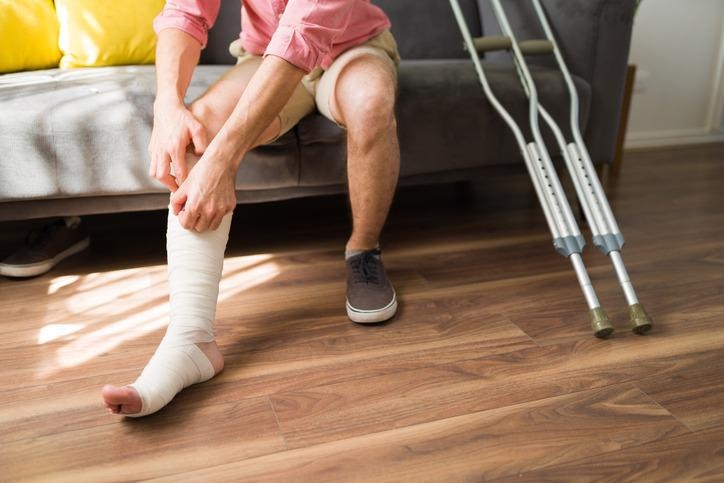Flinders University studies to determine if people with lymphoedema experience symptom variations due to varying climatic conditions aim to provide better treatment outcomes for patients trying to cope with longstanding swelling in their limbs.
 Increased climate temperature impacts compliance with standard lymphoedema treatment of compression bandaging. Image Credit: Flinders University
Increased climate temperature impacts compliance with standard lymphoedema treatment of compression bandaging. Image Credit: Flinders University
Ms Susan Witt (PhD candidate at Flinders University, with Professor Neil Piller as primary supervisor) gave a presentation on her continuing research into this subject at the recent Australasian Lymphology Association Conference in Hobart.
Ms Witt, who previously lived and worked in Darwin as an Occupational Therapist but now lives and works in Germany, also presented her initial focus group results to the Lymphoedema Association of South Australia, and says the impact of climate change on lymphoedema will need to be addressed with revised patient treatments.
This work builds on long-term lymphoedema research at Flinders University led by Professor Piller, Director of the Lymphoedema Clinical Research Unit based at the Flinders Centre for Innovation in Cancer.
Chronic oedema is a significant problem worldwide resulting from failure of the lymphatic system to cope with the load of extra-cellular fluid.
When the temperature increases, vasodilation occurs to increase superficial blood flow in order to facilitate heat dissipation and therefore maintain normal core body temperature. The increase in blood flow may present difficulties for those with impaired lymphatic drainage, causing further oedema. Additionally, the increased temperature impacts compliance with standard treatment recommendations of compression garments and bandaging.
With climate change predicted to raise average temperatures across the globe by 2C-to-5C – and with such change impacting the human thermal environment – the magnitude of these difficulties is likely to increase.
This has been reported anecdotally from patients who indicated that increased heat and humidity exacerbated symptoms of lymphoedema. It is also affecting patients who report difficulty wearing compression garments due to discomfort from increased warmth and difficulty donning garments over sweaty, damp skin. It is not possible to separate environmental considerations from health considerations, so this research will have important ongoing outcomes.”
Ms Susan Witt, PhD Candidate, Flinders University.
Because climatic conditions vary substantially across the world, this project will be conducted via a multi-national consortium, primarily involving Germany (in partnership with the Foeldi Clinic) and Australia, and the study will have three main components: collecting data from focus group discussions, electronically distributed questionnaires and comparative physiological measurements taken from a cohort of people seen at multiple times throughout the year.
Ms Witt says the study’s outcomes will provide strong recommendations for treatment strategies – such as whether wearing stockings is a major determinant of therapeutic success, or not.
“Ultimately, the most important outcome will be for the patient. Results will directly contribute to treatment strategies and recommendations which may differ depending on the climatic conditions, thereby challenging current practices.”